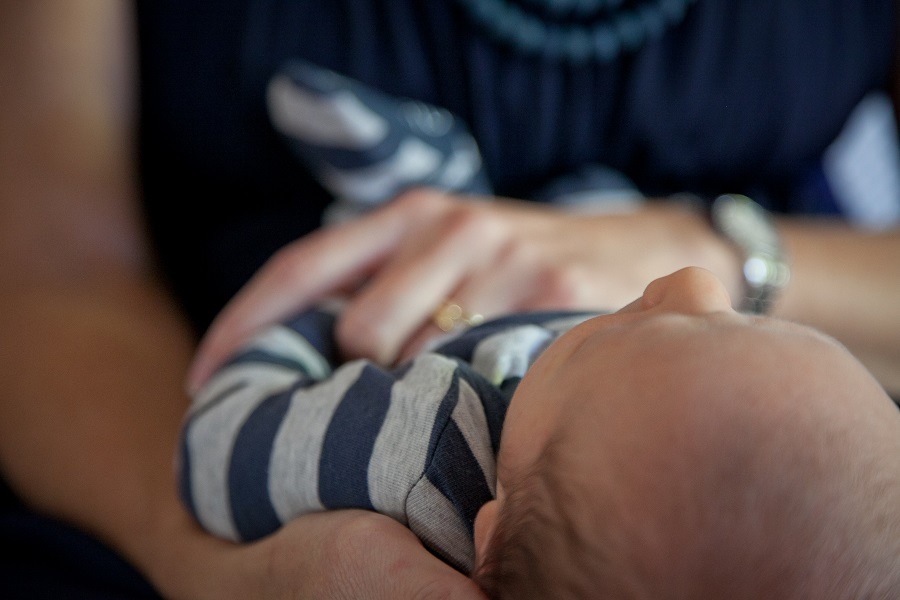Recognizing the Signs of Postpartum Depression


The sleep deprivation, overwhelming responsibilities and physical changes that come with a new baby can bring on many powerful emotions. You may experience joy, awe and bliss, while feeling scared, anxious, and overwhelmed. This jumble of emotions, known as “baby blues,” can last for a couple weeks and often go away without medical treatment. While it can be upsetting and confusing, these feelings of unhappiness and self-doubt are both normal and expected.
However, some mothers experience a deep, ongoing depression that doesn’t go away, or gets worse. Called postpartum depression (PPD), it can make you feel sad, worthless and unable to care for or bond with your infant. If you or a loved one have PPD, getting treatment and newborn assistance can help you manage symptoms and start to enjoy your baby and motherhood.
What Causes Postpartum Depression?
Postpartum depression can occur within the first weeks, months or up to a year after having a baby. It is believed to be related to the rapid hormonal changes that occur during and after birth. While it can affect anyone, some factors put you at a greater risk. These include:
- Personal history of depression
- Depression with a previous pregnancy
- Family history of depression
- of support at home
- Stress during pregnancy
- Medical concerns during pregnancy, labour or after birth
Symptoms
The signs and symptoms of postpartum depression are often missed because significant changes in sleep, energy levels, interests and mood are all expected after having a baby. Every woman is different, but common symptoms include:
- Sadness and/or intense mood swings
- Anxiety and panic attacks
- Feelings of inadequacy, especially as a mother
- Extreme guilt
- Lack of connection with your baby
- Loss of interest in the things you used to enjoy
- Withdrawal from friends and family
- Trouble sleeping or sleeping too much
- Increased or decreased appetite
- Overwhelming fatigue
- Inability to make decisions or think clearly
- Thoughts of harming yourself or your baby
In other rare cases, a mother may experience a severe mood disorder called postpartum psychosis. This can include hallucinations, paranoia, severe insomnia, bizarre behaviour and attempts to hurt yourself or your baby. This is an acute condition that can be dangerous. Get immediate medical attention and newborn assistance to protect yourself and your baby.
In other rare cases, a mother may experience a severe mood disorder called postpartum psychosis. This can include hallucinations, paranoia, severe insomnia, bizarre behaviour and attempts to hurt yourself or your baby. This is an acute condition that can be dangerous. Get immediate medical attention and newborn assistance to protect yourself and your baby.
When to See a Doctor
Experiencing the symptoms of PPD can be very painful for women—especially with the expectation that new motherhood is a happy time. If you are feeling depressed for more than two weeks or your symptoms keep getting worse, make an appointment with your doctor. The sooner you seek treatment, the faster you’ll start to feel like yourself again. If any of your symptoms suggest postpartum psychosis, or you feel like you might harm yourself or your baby, get help immediately.
How is Postpartum Depression Treated?
Depending on the type and severity of symptoms, there are a few ways postpartum depression can be treated. Treatment options include anti-anxiety or antidepressant medications, therapy, support groups and lifestyle changes. While PPD can go away on its own, symptoms will improve more quickly and effectively with the right treatment. Speak to a health professional to determine the best course of action for you.
Lifestyle changes can significantly reduce your symptoms and help you manage the increased stress of parenthood. While it can be challenging to prioritize yourself, you may find it helpful to:
- Get more sleep
- Exercise
- Eat healthy, regular meals
- Ask for and accept help
- Take breaks
Helping a Friend or Loved One
If you’re concerned that your partner or someone you love has postpartum depression, encourage her to talk to a doctor or mental health professional. People experiencing depression often don’t recognize or acknowledge that they are struggling. If your loved one has the symptoms of postpartum psychosis, don’t wait—help them seek medical attention today.
Once your loved one is receiving the care she needs, you can find other ways to support her recovery:
- Be patient, understanding and kind
- Check in regularly to see how she’s doing
- Listen when she wants to talk
- Give her breaks from childcare responsibilities
- Help around the house
- Exercise together
Postpartum depression doesn’t just affect new moms. It can also be experienced by mothers of multiple children, adoptive parents and partners. It can be unbearable when the weeks and months after welcoming a baby into the family are filled with sadness and despair. But, with the right treatment and support, you can start to feel like yourself again and begin to enjoy the many joys of parenthood.
Contact VHA Home HealthCare to learn more about newborn assistance and available resources in your area.



